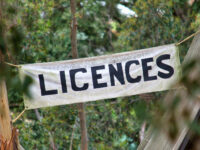Canadian copyright lobby groups have repeatedly tried to convince the government that the 2012 copyright reforms and Supreme Court fair dealing jurisprudence created a free-for-all in which education refuses to pay licence fees due to their reliance on fair dealing. The data from yesterday’s post on massive shift to site licences tells a different story, namely that Canadian educational institutions spend hundreds of millions annually on licences that provide both access works and the flexibility to use them in a myriad of ways. My Fair Dealing Week series on Canadian copyright, fair dealing and education (Setting the Record Straight) continues with another type of licence that has grown in importance in recent years: the pay-per-use or transactional licence. These licences, which grant access to, and use of, individual works, demonstrate that lobby group claims bear little relationship to reality. Indeed, if the lobby groups were right about unlimited uncompensated copying, why would education still spend millions a pay-per-use licences? They obviously wouldn’t, but since fair dealing represents a fair approach to both creators and users, education recognizes that fair dealing does not lead to the complete elimination of licensed copying.
Post Tagged with: "pay-per-use licence"

Law Bytes
Episode 257: Lisa Given on What Canada Can Learn From Australia’s Youth Social Media Ban
byMichael Geist

February 9, 2026
Michael Geist
Episode 256: Jennifer Quaid on Taking On Big Tech With the Competition Act's Private Right of Access
February 2, 2026
Michael Geist
The Law Bytes Podcast, Episode 255: Grappling with Grok – Heidi Tworek on the Limits of Canadian Law
January 26, 2026
Michael Geist
December 22, 2025
Michael Geist
December 8, 2025
Michael Geist
Search Results placeholder
Recent Posts
 Time for the Government to Fix Its Political Party Privacy Blunder: Kill Bill C-4’s Disastrous Privacy Rules
Time for the Government to Fix Its Political Party Privacy Blunder: Kill Bill C-4’s Disastrous Privacy Rules  The Law Bytes Podcast, Episode 257: Lisa Given on What Canada Can Learn From Australia’s Youth Social Media Ban
The Law Bytes Podcast, Episode 257: Lisa Given on What Canada Can Learn From Australia’s Youth Social Media Ban  Court Ordered Social Media Site Blocking Coming to Canada?: Trojan Horse Online Harms Bill Clears Senate Committee Review
Court Ordered Social Media Site Blocking Coming to Canada?: Trojan Horse Online Harms Bill Clears Senate Committee Review  An Illusion of Consensus: What the Government Isn’t Saying About the Results of its AI Consultation
An Illusion of Consensus: What the Government Isn’t Saying About the Results of its AI Consultation  The Law Bytes Podcast, Episode 256: Jennifer Quaid on Taking On Big Tech With the Competition Act’s Private Right of Access
The Law Bytes Podcast, Episode 256: Jennifer Quaid on Taking On Big Tech With the Competition Act’s Private Right of Access

